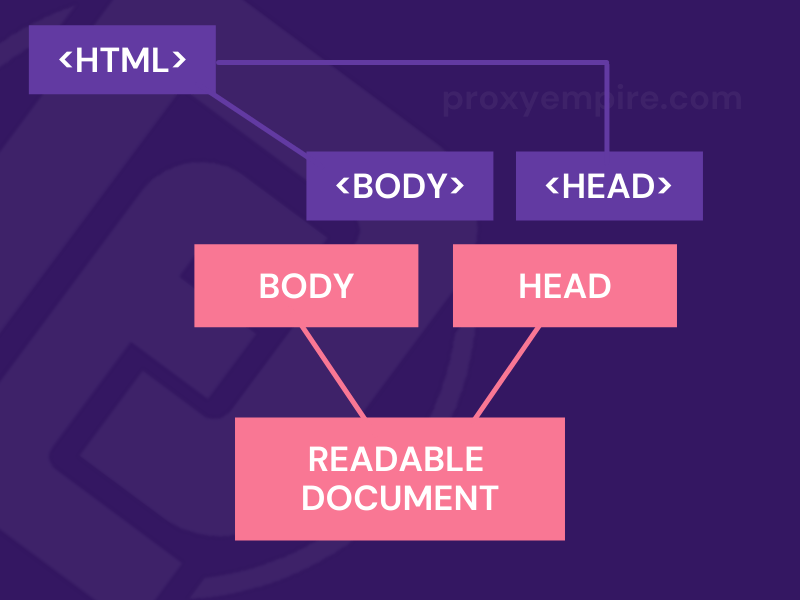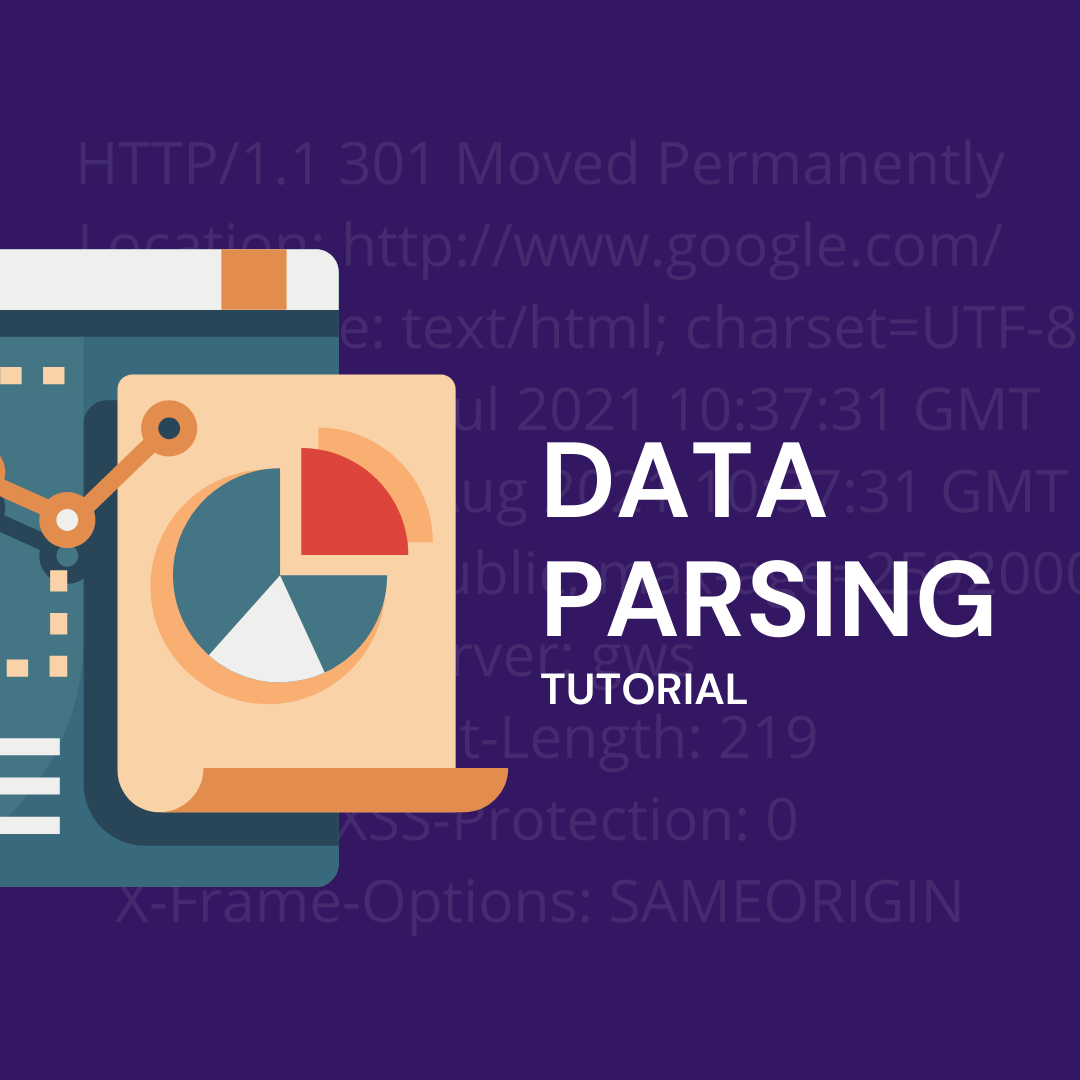The truth is, data in its original form looks nothing like readable information for the human eye. If you work in the tech space and directly or indirectly process data for your SaaS, clientele, or project — you’ve probably already heard of data parsing at some point.
In this tutorial, we’re going to discuss what is data parsing.
You’re going to learn how data in its raw format ends up being compiled into readable text. We will also be weighing the pros and cons of building your parser versus paying for one.
What Is Data Parsing?
Data parsing is when you take data gathered from its original format and transform it into another, usually, that means making it readable for the human eye.
Data parsing is a common process with developers.
That is because it is used in compilers when you need to take a language and generate machine code. This is how machines and humans can read and understand one another. A compiler facilitates the data being parsed which enables it to be understood.
Web scrapers who use ProxyEmpire for their residential and mobile proxies parse data on the regular basis. This is done after the data has been extracted, usually using a cURL with proxy method.
Data parsing is the backbone of data transference for web scrapers. That is because raw HTML can be difficult for humans to understand, but when you parse the data from the HTML and place it within a table it can become clear for people to see.
It’s usually at that point the table is then transferred to a visual aid like a graph or chart.
How Data Parsing Works
A good data parser distinguishes information from a computer language, in the case of web scraping, an HTML string. Different data parsers are designed with rules to extract and convert data of different formats and make it usable for humans.
It is typical for the data to be displayed as a simple CSV file.

Use of images only permitted when a proper credit to this blog post is linked.
No matter the language, data parsing relies on a two-step process to present the information in a readable file. Let’s look at the first step.
Lexical Analysis
This is a process of a data parser creating tokens from a sequence of characters. each parser is designed by its creator to make the tokens by using a lexical vocabulary that differentiates between an unreadable language and the keywords that are wrapped within it.
During The lexical analysis stage, the parser is separating readable words from strings of text that do not matter for the end-user. It’s like removing a cap from a bottle so you can drink the water.
Syntactic Analysis
Once the lexical analysis is complete the data parser starts building a tree from the tokens that were used in the previous step. This gives the presentation a usable form, organizing the data into what resembles a file directory within your computer system.
After the parser is finished the information can be saved in any file format. For the more experienced a JSON is sometimes used. If your data is coming from an HTML language, then a CSV table works well.
Should You Build or Buy A Data Parser?
So far, you’ve learned how data parsing works and what it is. Now let’s talk about the best way to leverage this technology for your own business. A common question we get asked is whether people should buy an already designed data parser or simply code their own.
It’s a fair question.
Let’s Look At Purchasing A Parser First
If you do not have a dedicated developer or CTO for your company, you may consider purchasing a data parser to be your best option.
Of course, this depends on whether one is for sale that covers your use case. Not all available data parsers are designed for what you want them to do. Tasks that are more popular like web scraping obviously have a larger choice of parsers available.
Customization is a downside. The upside is that all the technical programming is done for you.
You do not have to manage a developer whether it be an in-house dev or freelancer. This gives startups a great advantage even if it cost more money.
Building Your Own Data Parser
If you make your parser in-house, there are obvious advantages. First, you gain full control over your data and how it is organized visually. Considering a parser can be written in almost all programming languages you can choose one that easily integrates with your software stack.
This is the best option for people who already have developers on their team or contracted out.
If you’re paying your devs hourly, you will most likely save money building your own data parser rather than purchasing one that is already created.
You also have the added upside that as platforms change you can change along with them without waiting for third parties to update their software that you purchased or continually paying for updates that may not integrate with your current stack.
That leads us to the downside, the complexity of maintaining a data parser.
Web platforms change and so does the code that they use. Because these ecosystems are in flux you will need to change how your data parser creates tokens and organizes the information into the tree that we discussed earlier.
It goes without saying that this can become a huge hurdle for someone who does not have a developer within their companies team.
Conclusion
Now you know that data parsing is a process of transferring information from one format into another. Buying a data parser is great for startups with limited tech knowledge and building a custom parser can provide you with unique benefits but comes with a maintenance cost.
If you need help selecting a data parser we would be happy to assist you in our live chat once we know what your use case is so feel free to reach out to us.





















